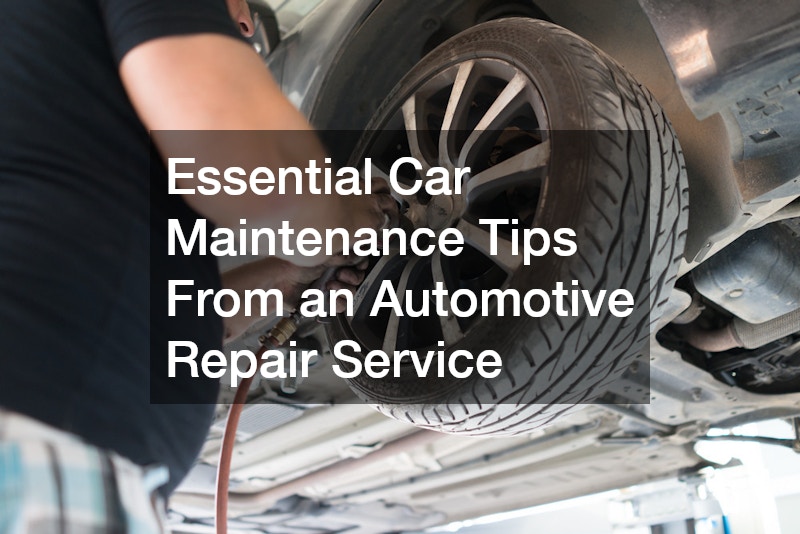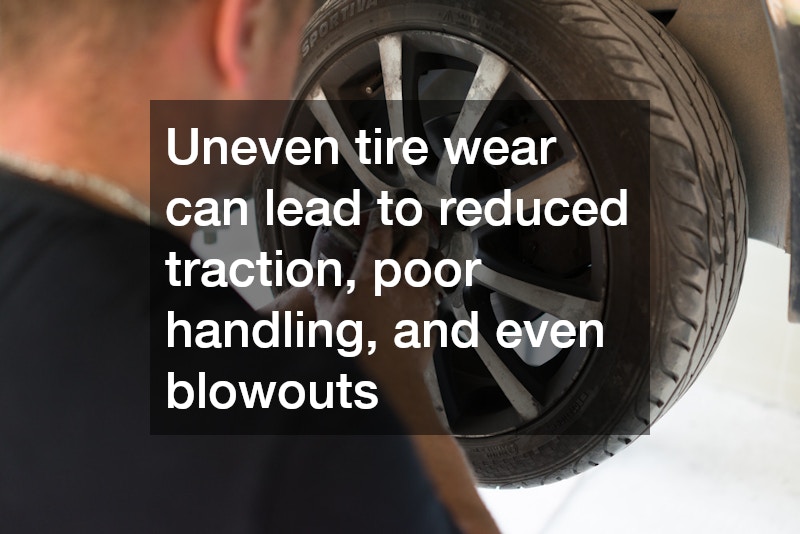Essential Car Maintenance Tips From an Automotive Repair Service

Keeping a vehicle in top condition is more than just a matter of pride—it’s a matter of safety, efficiency, and longevity. According to experts at a leading automotive repair service, routine maintenance is the key to preventing costly repairs and ensuring your car runs smoothly for years. Whether you drive a compact sedan or a heavy-duty SUV, following essential car maintenance practices can save time, money, and stress on the road.
1. Regular Oil Changes
One of the simplest yet most crucial maintenance tasks is changing your engine oil. Engine oil lubricates moving parts, reduces friction, and helps dissipate heat. Over time, oil breaks down and becomes less effective, which can lead to increased engine wear and even failure.
Most automotive repair services recommend changing your oil every 3,000 to 5,000 miles for conventional oil and 7,500 to 10,000 miles for synthetic oil, depending on the manufacturer’s guidelines. Neglecting oil changes can result in sludge buildup, decreased fuel efficiency, and costly engine repairs. Remember, regular oil changes are a small investment that pays off in longevity and performance.
2. Tire Care and Rotation
Tires are the only part of your car that contacts the road, so maintaining them is vital for safety and efficiency. Regular tire maintenance includes checking tread depth, inspecting for damage, maintaining proper inflation, and rotating tires.
Uneven tire wear can lead to reduced traction, poor handling, and even blowouts. Most automotive repair services suggest rotating tires every 5,000 to 7,500 miles. Additionally, checking tire pressure monthly ensures optimal fuel efficiency and prolongs tire life. Remember, well-maintained tires not only keep you safe but also improve your vehicle’s overall performance.
3. Brake System Inspection
Your vehicle’s braking system is one of the most critical safety components. Over time, brake pads wear down, rotors can become warped, and brake fluid can lose its effectiveness. Automotive repair services recommend a thorough brake inspection at least once a year or every 12,000 miles.
Signs that your brakes need attention include squealing or grinding noises, a spongy brake pedal, or longer stopping distances. Addressing brake issues promptly can prevent accidents and save on costly repairs like rotor replacement or brake line repairs. Regular brake maintenance ensures you can stop safely under any driving condition.
4. Fluid Checks and Replacements
Beyond engine oil, your car relies on various fluids for smooth operation. This includes coolant, transmission fluid, power steering fluid, brake fluid, and windshield washer fluid. Low or contaminated fluids can lead to overheating, transmission issues, or steering problems.
Most automotive repair services recommend checking fluids at least every three months or during routine service visits. Replacing fluids according to your manufacturer’s schedule helps prevent breakdowns, reduces wear on components, and ensures your car performs efficiently. Simple fluid checks can avert serious mechanical issues and extend your vehicle’s life.
5. Battery Maintenance
A dead or weak battery can leave you stranded at the most inconvenient times. Car batteries typically last three to five years, depending on driving habits and climate. Signs of a failing battery include slow engine cranking, dim headlights, or warning lights on your dashboard.
Automotive repair services advise testing your battery annually, especially before winter, when cold weather can reduce battery capacity. Cleaning battery terminals, checking for corrosion, and ensuring a secure connection are simple maintenance steps that can prevent sudden battery failure. Proactive battery care ensures your car starts reliably every time.
6. Air Filter Replacement
The engine air filter plays a vital role in preventing dust, dirt, and debris from entering the engine. A clogged air filter can reduce fuel efficiency, decrease engine performance, and increase emissions.
Experts at automotive repair services recommend inspecting the air filter every 12,000 to 15,000 miles and replacing it if necessary. In dusty or heavily polluted areas, more frequent replacements may be required. A clean air filter keeps your engine running smoothly and contributes to better fuel economy and cleaner exhaust emissions.
7. Belts and Hoses
Belts and hoses are essential for transferring power and fluids throughout your vehicle. Over time, belts can crack or fray, and hoses can weaken, leak, or burst. Ignoring these components can lead to engine overheating, loss of power steering, or alternator failure.
Automotive repair services recommend checking belts and hoses at every oil change or at least twice a year. Replacing worn or damaged belts and hoses proactively prevents breakdowns and ensures all systems function properly. A well-maintained engine is a more reliable and efficient engine.
8. Regular Vehicle Inspections
Routine inspections by a professional automotive repair service can identify potential issues before they become major problems. Inspections typically cover brakes, suspension, steering, tires, fluid levels, belts, hoses, and more.
Scheduling a comprehensive inspection at least once a year or before long trips helps maintain safety, prolong vehicle life, and avoid expensive emergency repairs. Detecting minor issues early ensures your car remains dependable and reduces the risk of roadside breakdowns.
9. Keep Your Car Clean
While washing and waxing your car may seem cosmetic, it’s also part of essential maintenance. Dirt, salt, and grime can cause paint damage and accelerate rust, especially in areas with harsh winters or near the coast.
Automotive repair services suggest washing your vehicle every two weeks and applying a protective wax coating every few months. Keeping your car clean not only preserves its appearance but also protects structural components and maintains resale value.
10. Follow the Manufacturer’s Maintenance Schedule
Every vehicle comes with a manufacturer’s maintenance schedule in the owner’s manual. This schedule outlines when to perform services such as oil changes, fluid replacements, filter changes, and more. Following these recommendations ensures your car receives the proper care based on its make, model, and driving conditions.
Automotive repair services emphasize that adhering to the manufacturer’s guidelines prevents premature wear, maintains warranty coverage, and keeps your vehicle running at peak performance.
Proper car maintenance is essential for safety, efficiency, and long-term reliability. Regular oil changes, tire care, brake inspections, fluid checks, and other proactive measures can prevent costly repairs and keep your vehicle performing at its best. By partnering with a trusted automotive repair service and following a routine maintenance schedule, drivers can enjoy peace of mind, lower repair costs, and a smoother driving experience. Your car is an investment—treat it with the care it deserves.



